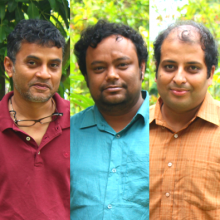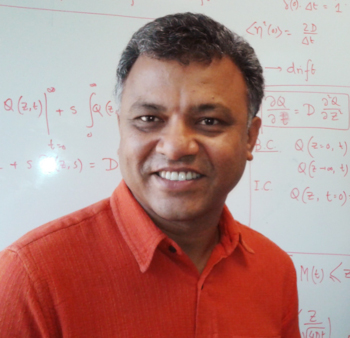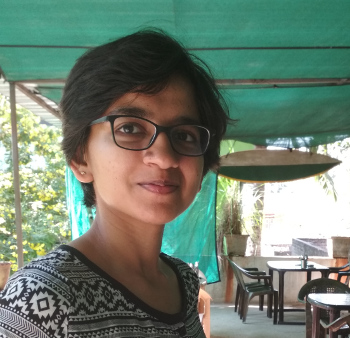A team of ICTS scientists were involved in a work that was selected and highlighted by the Editors as an Editors’ Suggestion in Physical Review Letters. Publications are highlighted as a suggestion due to its particular importance, innovation, and broad appeal. The work titled “Harmonically confined particles with long-range repulsive interactions” by S. Agarwal, A. Dhar, M. Kulkarni, A. Kundu, S. N. Majumdar, D. Mukamel, G. Schehr appeared in Phys. Rev. Lett. 123, 100603 (2019) as an Editors’ Suggestion and is a significant step forward in the area of exact solutions of many body systems.
The authors study a classic and important model of interacting particles that has attracted a lot of attention, during the last decades, both in physics and in mathematics. The model consists of particles interacting with each other with power-law interaction for arbitrary powers inside a harmonic confinement. These family of models contain in them some special points such as one component plasma, the Dyson's log-gas, and the Calogero-Moser model that have themselves been subject to intense investigation in physics and mathematics. The work consists of deriving a rigorous Large-N field theory and then finding solutions to the field theory (which for e.g., would give the average particle density profile). The authors show remarkably drastic difference in the macroscopic behaviour of the system, where for smaller powers, large distance behavior of the interaction potential dominates and for larger powers, the short distance physics dominates. The work is a significant step forward in understanding how one could go from a microscopic system to a field theory by handling very subtle mathematical issues (such as singularities). The results obtained are also, in principle, measurable in experiments for a wide class of power-law models given recent cutting-edge technologies.




